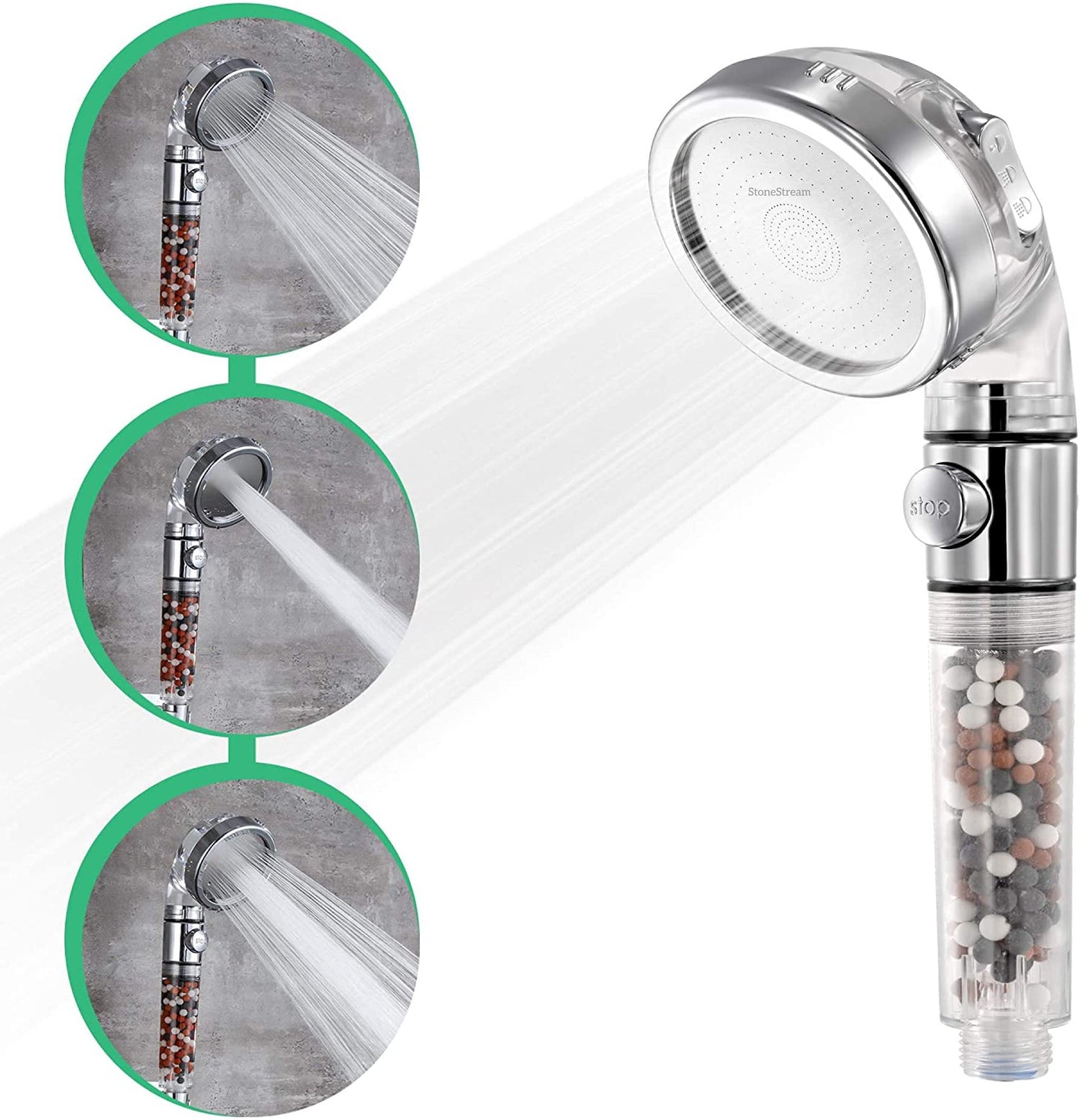The everyday ritual of a soothing shower can be a sanctuary, but what if your water is trying to tell you something? If you've noticed stubborn white spots on your tiles or felt like your soap just isn't lathering up as it should, you might be dealing with hard water.
So, what are some of the signs of hard water in our shower room? Good for you, as in this blog, we’re about to delve into how to know if you have hard water in your shower!
Spot the Spots!
When it comes to identifying hard water in your shower, one of the most prominent indicators is the presence of white spots or scaling. These deposits are caused by the minerals in hard water, particularly calcium and magnesium. As water evaporates, these minerals are left behind, forming a visible residue on surfaces like tiles, fixtures, and glass doors. Removing these spots can be a persistent challenge, requiring specialised cleaning solutions or vinegar-based remedies.
The Lather Challenge
One of the more frustrating aspects of dealing with hard water is the difficulty in creating a good lather with soaps and shampoos. This occurs due to the minerals in hard water interfering with the chemical reaction that produces suds. As a result, you might find that your soap or shampoo doesn't spread as easily or create the same rich lather as it would in soft water. This can lead to a feeling of incomplete cleanliness, even after a thorough rinse.
Hair Misadventures
The impact of hard water on hair is often quite noticeable. Hard water strips away the natural oils that keep your locks healthy and hydrated. This can leave your hair feeling dry, lacklustre, and prone to tangles. Over time, the cumulative effect of hard water on your hair can lead to a noticeable decline in its overall texture and manageability.
Check out: 5 Benefits of StoneStream Showerheads over regular showerheads
Skin SOS
Your skin isn't immune to the effects of hard water either. The minerals in hard water can disrupt the delicate balance of natural oils on your skin's surface. This disruption can leave your skin feeling tight, dry, and uncomfortable after a shower. For individuals with sensitive or dry skin, this effect can be particularly pronounced and may even lead to irritation or exacerbate existing skin conditions.
Faucet Follies
An often-overlooked clue about the presence of hard water lies in your plumbing fixtures. If you notice a stubborn layer of mineral buildup around your faucets and showerheads, it's a strong indication of hard water. Over time, this buildup can affect the performance of your fixtures, reducing water flow and potentially leading to issues with clogs or reduced water pressure.
There you have it, fellow water detectives! With these signs, you're well-equipped to decipher the hard water mystery in your shower. Fear not, as there are water softeners to specialised products that can transform your water from foe to friend. So, bid adieu to the water woes and step into your shower sanctuary with confidence! Happy showering!
Chrome Hard Water shower filter Add-on

Buy Now
Worried about hard water in your shower room? Get the EcoPower showerhead by Stonestream to shower peacefully and treat your skin and hair with the ultimate shower sensation. Explore the range of products by StoneStream and transform your shower room into a shower heaven!
Also Read: How to Clean Shower Grout
FAQs
-
What exactly is hard water?
Ans. Hard water is water that contains a high concentration of minerals, primarily calcium and magnesium. These minerals are picked up as the water passes through underground rock formations, which leads to its hardness. While safe for consumption, hard water can pose challenges for household activities. -
How does hard water affect my hair and skin?
Ans. Hard water can have several noticeable effects on your hair and skin. It tends to leave a residue on your skin, which can lead to dryness and irritation. For hair, it can strip away natural oils, resulting in dullness, frizz, and an overall lackluster appearance.
-
Can hard water damage my plumbing and appliances?
Ans. Yes, hard water can be harsh on your plumbing and appliances. The mineral buildup from hard water can lead to clogs, reduced water flow, and even corrosion in pipes. In appliances like washing machines and dishwashers, it can reduce efficiency and lifespan.
-
How can I determine if I have hard water in my home?
Ans. There are a few indicators of hard water. Look for mineral deposits or scaling on faucets and fixtures. Another sign is difficulty lathering soap or shampoo, as hard water tends to inhibit the formation of suds. Spots on glassware after washing are also a common clue.
-
What can I do to mitigate the effects of hard water?
Ans. There are solutions available to combat the effects of hard water. Installing a water softener is a popular choice, as it removes the minerals responsible for water hardness. Additionally, using specialised shampoos and soaps designed for hard water can help alleviate its impact on hair and skin. Regular maintenance of plumbing fixtures can also help prolong their lifespan despite exposure to hard water.



